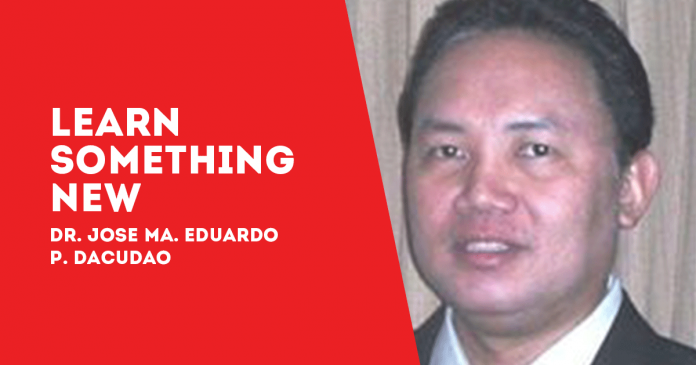
(By Dr. Joseph D. Lim and Dr. Kenneth Lester Lim)
ORAL HEALTH care is more than just dentists and hygienists.
It is a lot wider profession – from professionals who solve crimes to technicians who develop new dental materials.
Indeed, “the world of dental science is full of opportunities,” the National Health Service (NHS) of the United Kingdom points out, shining a spotlight on the diverse range of roles within the NHS.
There are the forensic odontologists who solve crimes. They use dental records and bite marks to help identify individuals in criminal investigations or disaster situations.
Teeth are unique to each person and can provide crucial evidence for identifying unknown remains or in criminal cases.
In the United Kingdom, dental forensic odontology requires a bachelor’s degree in a relevant field and attending dental school for a degree in Doctor of Dental Surgery (DDS) or Doctor of Dental Medicine (DMD), followed by specialized training in forensic science.
Then there are the oral and maxillofacial radiologists. They specialize in interpreting X-rays, CT scans, and MRIs of the mouth, jaw, and face to diagnose a variety of health conditions. It’s an important job because detecting issues such as tumors, fractures, or hidden infections early can make all the difference to a patient’s treatment plan.
To become one, a degree in dentistry followed by specialized radiology training and certifications are required.
Dental microbiologists study bacteria and viruses that contribute to common oral diseases like tooth decay, gum disease, and oral cancer. Research from dental microbiologists helps shape the development of new treatments and prevention strategies, improving public health.
The profession requires a degree in microbiology or a related field, with a focus on dental or medical microbiology, with a clinical and research (PhD) training.
Dental materials scientists develop and test new dental materials, such as fillings, crowns, and braces, to make them stronger, safer, and more natural-looking. They play key roles in improving the durability and aesthetics of dental treatments, making procedures more effective for patients.
A background in material science or engineering, often with a postgraduate specialization in dental or bioengineering is required for the dental materials scientist profession.
Dental technicians create custom dental appliances like crowns, bridges, dentures, and orthodontic devices based on a dentist’s specifications. Dental technicians work behind the scenes, ensuring that patients get high-quality, functional, and aesthetically pleasing restorations. Without them, the work of dentists would not be complete.
In the United Kingdom, the profession requires a recognized dental technician qualification or apprenticeship in dental technology.
Also in the UK are special care dentists who help patients with complex needs. They provide dental care to patients with disabilities, medical conditions, or severe anxiety, using tailored approaches to make treatment more accessible.
They’re important because many people with complex needs require specialist dental care to ensure their oral health isn’t overlooked, which can improve their overall well-being.
A degree in dentistry followed by postgraduate training in special care dentistry are required for a career as a special care dentist.
Then there are the oral health educators who educate people of all ages about maintaining good oral hygiene and preventing oral diseases, often in schools, clinics, or community settings. They raise awareness about oral health, helping reduce the incidence of tooth decay and gum disease, contributing to healthier communities.
The career requires a background in dental hygiene or public health, with additional qualifications in teaching and health education.
Dental public health specialists work at the community or national level to develop policies and public health campaigns that improve oral health across society, such as fluoride programs or sugar reduction initiatives. Their efforts help shape healthcare policy, making dental care more accessible to everyone, regardless of background.
A degree in dentistry followed by a master’s in public health or similar public health training is required for this profession.
***
Dr. Joseph D. Lim, Ed. D., is the former Associate Dean of the College of Dentistry, University of the East; former Dean, College of Dentistry, National University; Past President and Honorary Fellow of the Asian Oral Implant Academy; Honorary Fellow of the Japan College of Oral Implantologists; Honorary Life Member of the Thai Association of Dental Implantology; and Founding Chairman of the Philippine College of Oral Implantologists. For questions on dental health, e-mail jdlim2008@gmail.com or text 0917-8591515.
***
Dr. Kenneth Lester Lim, BS-MMG, DDM, MSc-OI, graduated Doctor of Dental Medicine, University of the Philippines, College of Dentistry, Manila, 2011; Bachelor of Science in Marketing Management, De la Salle University, Manila, 2002; and Master of Science (MSc.) in Oral Implantology, Goethe University, Frankfurt, Germany, 2019. He is an Associate Professor; Fellow, International Congress of Oral Implantologists; and Fellow, Philippine College of Oral Implantologists. For questions on dental health, e-mail limdentalcenter@gmail.com/PN







